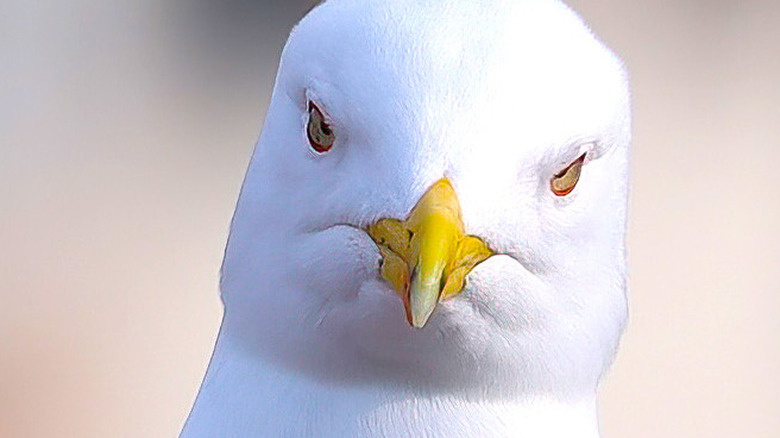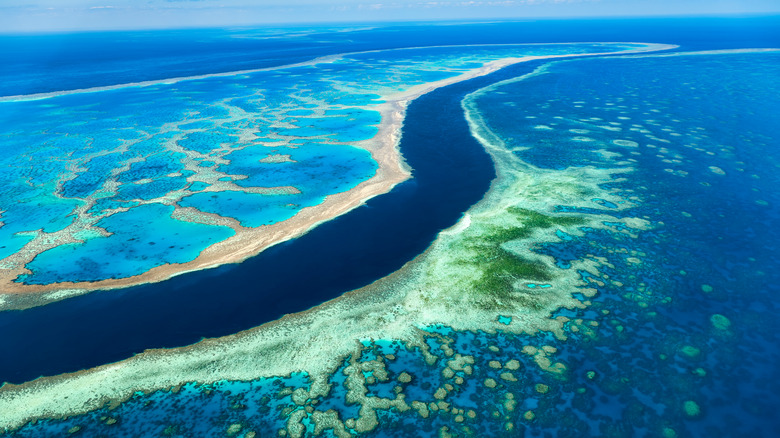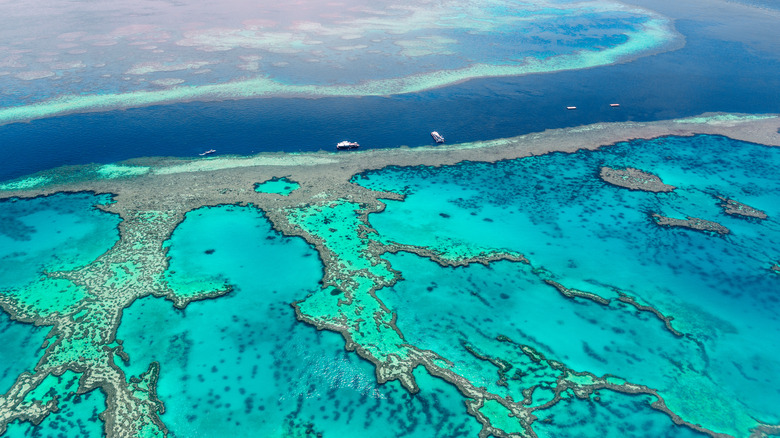Bird Poop Played An Unexpected Role In The Great Barrier Reef's Declining Health
The Great Barrier Reef, important to the Australian economy and to worldwide ecology, is under stress. The planet's biggest coral reef ecosystem, the Great Barrier Reef provides habitat to a number of species (via The Great Barrier Reef Marine Park Authority, GBRMPA). Moreover, thousands of tourists flock to see and spend money in the reef area adding financial incentive to reef restoration, according to CNBC. Part of the reef recovery process may also involve addressing effects of an age-old industry involving bird droppings.
Though more work remains, some efforts to restore this crucial ecosystem have paid off, according to Axios. In 2022, for example, the Australian government announced it would stop a coal mine from being built due to potential impact increased greenhouse gas emissions could have on the reef. Global warming is already listed among the reef's biggest stressors (via CNBC), while further damage is caused by pollution (via Axios). A confluence of factors clearly threatens the reef, but pressure was also applied by an industry dating all the way back to the 1850s (per Shark Bay).
Bird droppings and the health of coral reefs
The 19th century industry that left its mark on Shark Bay near the Great Barrier Reef is bird-poop mining, also called guano mining. According to Shark Bay, before the advent of commercial fertilizers bird droppings made a great substitute, making mining and selling avian guano could be lucrative. With the advent of chemical fertilizers, the practice of mining for bird poop has all but died out but it was once common in the Great Barrier Reef area.
To understand the negative impact that had on the reef, it's important to note that bird poop could also play a part in the reef's recovery, as Forbes notes. Though rich in life, reefs are famously poor in nutrients. Bird waste on water or on land is full of both phosphorus and nitrogen. When bird droppings reach the water — from the air or washed out to sea in a rainstorm — it helps algae and plant life grow on the coral providing the bedrock for other species. Without those nutrients, coral tends to bleach and as a result, it becomes inhospitable.
Guano mining stripped land near the reef of important nutrients
Though bird poop restoration may help bring the Great Barrier Reef back to life, it also played a part in its decline. As previously mentioned, guano mining took place in Shark Bay and on islands in the reef area. Because of this practice, the landscape was stripped of important nutrients both from bird poop but also from the vegetation and other types of wildlife wiped out or driven away by the industry. In turn, the reef was starved of nutrients and so was the species which call it home.
For this reason, restoring birds and therefore bird droppings to the Great Barrier Reef area could be an important step to buttress recent gains made in bringing the reef back to life, as CNBC notes. On that note, chief scientist at the Great Barrier Reef Foundation, Peter Mumby told (via CNBC) that the first step is forest restoration. "[T]hat will then help attract and retain some of the natural birds and other animals," Mumby said. "[W]e're only just beginning to understand the links between having healthy vegetation on an island and how that benefits the fish and other things offshore."


